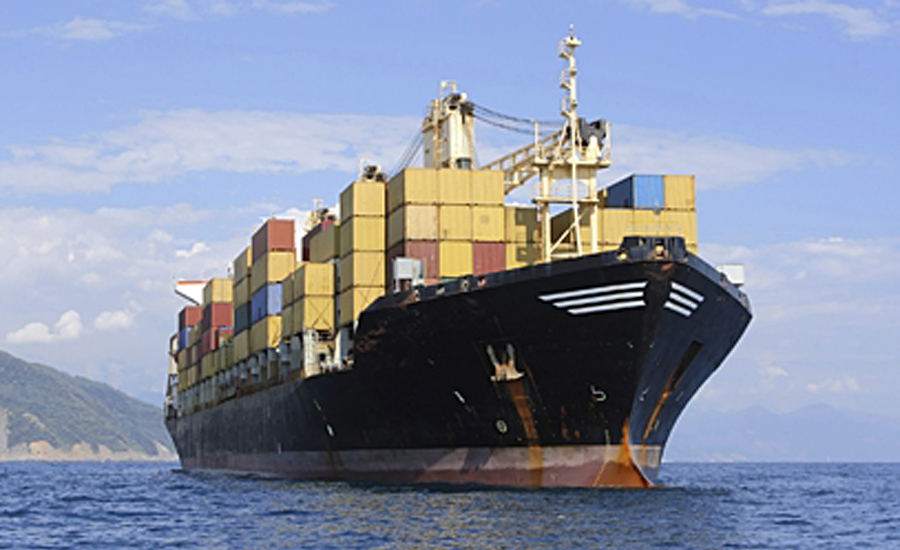Maersk, Denmark, and IBM, North Castle, N.Y., announced plans to establish a joint venture to provide more efficient and secure methods for conducting global trade using blockchain technology.
Traditional cross-border shipping processes usually involve manually transporting and verifying paper documents for each shipment. IBM and Maersk’s joint venture will use blockchain technology to make global trade more efficient, transparent and secure.
The aim of the new company will be to offer a jointly developed global trade digitization platform built on open standards and designed for use by the entire global shipping ecosystem. By applying the technology to digitize global trade processes, a new form of command and consent can be introduced into the flow of information, empowering multiple trading partners to collaborate and establish a single shared view of a transaction without compromising details, privacy or confidentiality.
Maersk, a global leader in container logistics, and IBM, a leading provider of blockchain, supply chain visibility and interoperability solutions for the enterprise, will use blockchain technology to power the new platform, as well as employ other cloud-based, open source technologies, including artificial intelligence (AI), Internet of Things (IoT) and analytics, delivered via IBM Services, to help companies move and track goods digitally across international borders. Manufacturers, shipping lines, freight forwarders, port and terminal operators and customs authorities can all benefit from these new technologies.
"This new company marks a milestone in our strategic efforts to drive the digitization of global trade. The potential from offering a neutral, open digital platform for safe and easy ways of exchanging information is huge, and all players across the supply chain stand to benefit," says Vincent Clerc, chief commercial officer at Maersk and future chairman of the board of the new joint venture. "By joining our knowledge of trade with IBM's capabilities in blockchain and enterprise technology, we are confident this new company can make a real difference in shaping the future of global trade."
IBM's blockchain platform enables clients and developers to build and scale active networks across complex use cases, including cross border payments, supply chains and digital identification.
"The major advances IBM has made in blockchain have shown that the technology can foster new business models and play an important role in how the world works by building smarter businesses," says Bridget van Kralingen, senior vice president, IBM global industries, solutions and blockchain. "Our joint venture with Maersk means we can now speed adoption of this exciting technology with the millions of organizations who play vital roles in one of the most complex and important networks in the world, the global supply chain. We believe blockchain will now emerge in this market as the leading way companies seize new untapped economic opportunities."
IBM and Maersk began collaborating in June 2016 to build new blockchain- and cloud-based technologies.
The joint venture will now enable IBM and Maersk to commercialize and scale their solutions to a broader group of global corporations.
Furthermore, Michael White, former president of Maersk Line in North America, was named chief executive officer of the new company.
"Today, a vast amount of resources are wasted due to inefficient and error-prone manual processes,” he adds. “The pilots confirmed our expectations that, across the industry, there is considerable demand for efficiency gains and opportunities coming from streamlining and standardizing information flows using digital solutions. Our ambition is to apply these learnings to establish a fully open platform whereby all players in the global supply chain can participate and extract significant value. We look forward to further expanding our ecosystem of partners as we progress toward a global solution."
The new company initially plans to commercialize two core capabilities aimed at digitizing the global supply chain from end-to-end:
- A shipping information pipeline will provide end-to-end supply chain visibility to enable all actors involved in managing a supply chain to securely and seamlessly exchange information about shipment events in real time.
- Paperless trade will digitize and automate paperwork filings by enabling end-users to securely submit, validate and approve documents across organizational boundaries, ultimately helping to reduce the time and cost for clearance and cargo movement. Blockchain-based smart contracts ensure all required approvals are in place, helping speed up approvals and reducing mistakes.
The new company will be headquartered in the New York metropolitan area.


